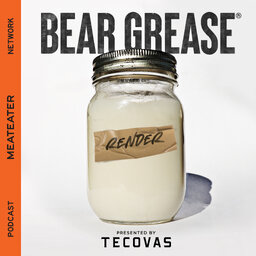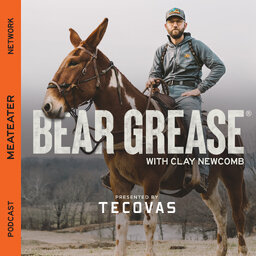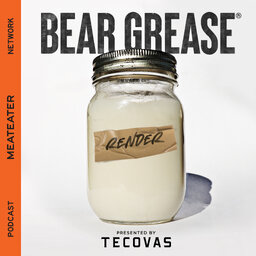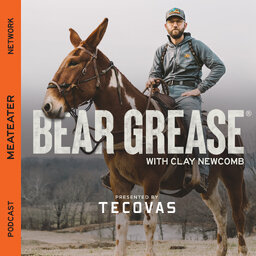Ep. 89: Bear Grease [Render] - Tecumseh, the Black Bear Bonanza, & Misty's First Duck Hunt
On this episode of Bear Grease, most of the regulars, Clay, Misty, Josh, Gary, and Isaac, gather at the Bear Grease Global Headquarters to discuss the great and enigmatic leader of the Pan-Indian Confederacy Movement, Tecumseh. But not before the crew, who is joined by James Brandenburg, Chair of the Arkansas chapter of Backcountry Hunters and Anglers, talk about the upcoming second annual Black Bear Bonanza which will take place March 4th from 9am to 5pm and feature, among other things, an owl hoot contest MC'ed by our very own Brent Reaves and judged by Clay Newcomb. Misty then dives into talking about her first duck hunt, before the outfit jumps back into discussing perhaps one of the most underrated, forgotten, and earliest American Folkheros - of whom was said "If it were not for the vicinity of the United States, he would perhaps be the founder of an empire that would rival in glory Mexico or Peru." We really doubt you're gonna want to miss this one...
Connect with Clay and MeatEater
Clay on Instagram
MeatEater on Instagram, Facebook, Twitter, and Youtube
Shop Bear Grease Merch
In 1 playlist(s)
Bear Grease
Home to the Bear Grease podcast and Bear Grease Render show with Clay Newcomb, and This Country Life…Social links
Follow podcast
Recent clips

Ep. 423: Render - Villines Logging
1:34:24

Ep. 420: American Loggers - Part 1
46:17

Ep. 418: Render - CBS Sunday Morning Behind-the-Scenes
1:13:25
 Bear Grease
Bear Grease